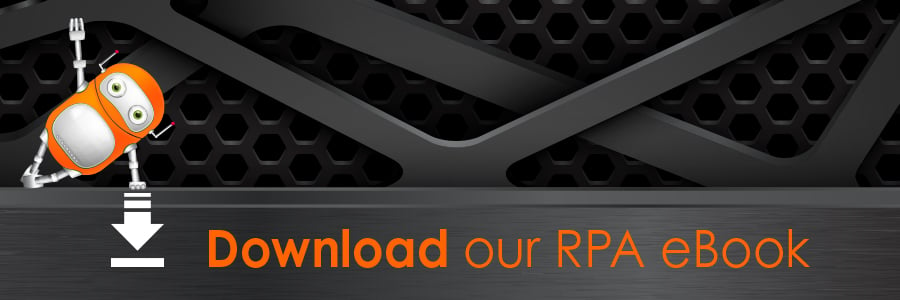The drive to automate back-office, data-heavy processes is certainly not new.
Businesses looking for a cost-effective way to means of modernising operations and securing a competitive advantage have been looking to incorporate Robotic Process Automation (RPA) into their digital transformation strategy. RPA offers the ability to automate repetitive and mundane business processes by using sophisticated software known as 'digital workers'.
By liberating employee’s intervention from these repetitive and mundane tasks, it allows them to do what they do best - solving problems, improving processes, conducting analysis, and other value-added work—resulting in higher employee engagement and new revenue opportunities. While delivering measurable business benefits, including cost reduction, greater accuracy, and delivery speed.
The plunge towards digital transformation is accelerating as businesses look towards the new era of Intelligent Automation. Intelligent Automation is enabling businesses to automate any front-or back-office business process end-to-end with human-like intelligence. This is achieved by combining RPA and Artificial Intelligence technologies to form a more robust platform that spans the entire automation journey.
Moving beyond rule-based tasks
Traditional automation relies on clearly defined and structured data to emulate the human execution of repetitive processes. Intelligent Automation goes beyond repeatable rule-based tasks by augmenting Al technologies to capture, store, manipulate, and retrieve records from unstructured digital systems.
Unstructured data does not reside in a traditional row-column format and accounts for 80% of modern business data. Unstructured data can include emails, videos, webpages, images, social media content and online bot chats.
Together, Al and RPA make automating extremely complex business processes a reality while being able to learn on the job to reason and make decisions.
The bots in action
By using invoice processing as an example, we can see the difference between the two.
RPA would be suitable for automating the grunt work of retrieving emails (based on the email’s subject), downloading the attached invoice into a defined folder, and copying and pasting this into the accounting software.
Intelligent automation is required to intelligently ‘read’ the invoices and extract information such as invoice number, due date, amount due, and product description.
The value of Intelligent Automation
- Boosts productivity by liberating employees from tedious, agitating, and repetitive business tasks to focus on higher-value tasks.
- Enhance customer experience by delivering quicker response times, greater accuracy, and consistent results.
- Eliminate process delays and reduce operational costs by reducing process handling times and overcoming process bottlenecks.
- Improve data accuracy and data-driven decision making by removing the risk of transactional errors.
- Reduce operational obstacles by connecting front and back-office operations.
- Increased compliance through enhanced auditing and guaranteed adherence to requirements.
An intelligent digital workforce is providing organisations with new opportunities to accelerate their digital transformation by seamlessly integrating technology, work processes and people.
Talk to one of our Automation experts or download our eBook, to learn how you can transform your organisation's repetitive and mundane tasks. 

